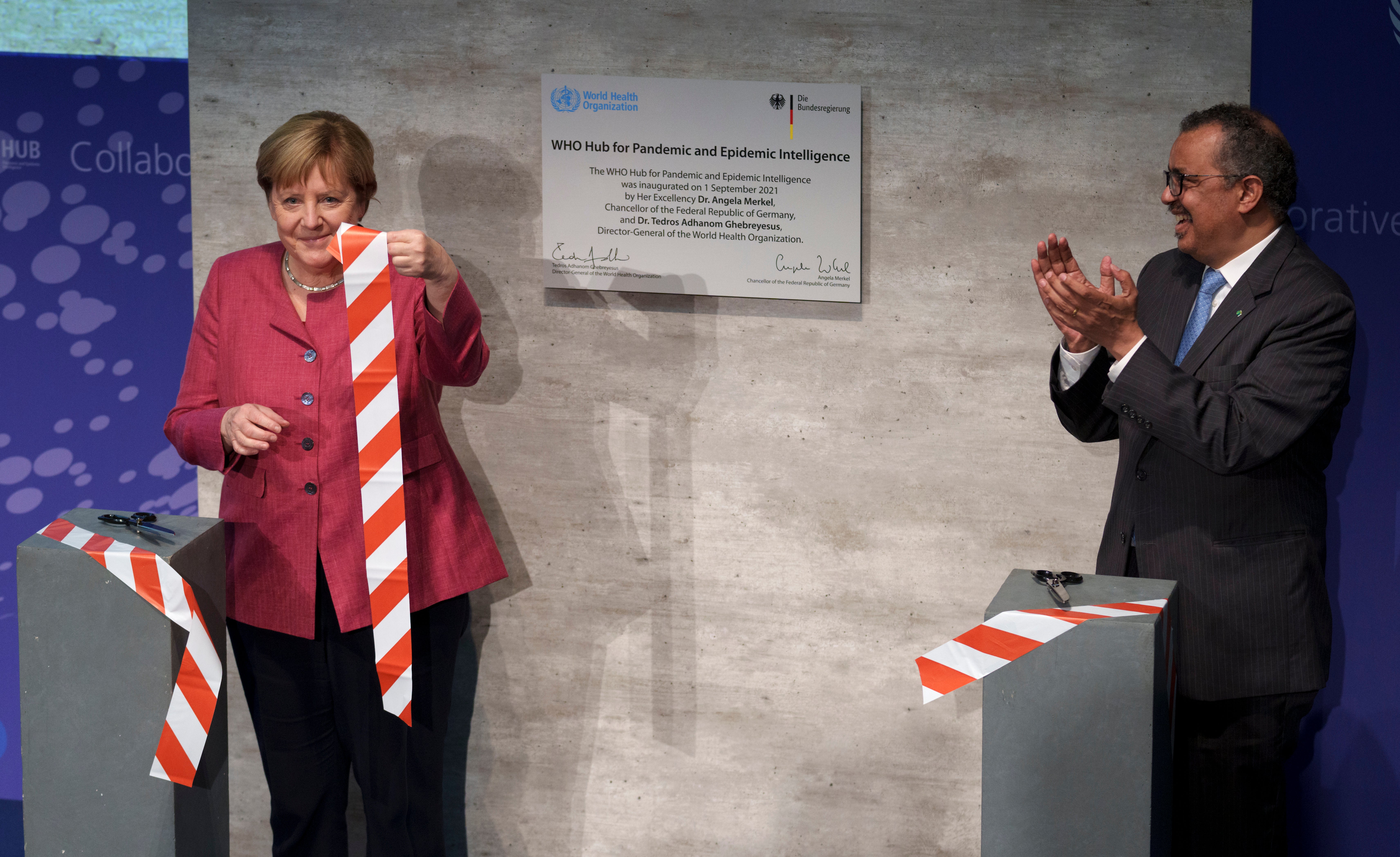WHO launches hub in Berlin to help prevent future pandemics
The World Health Organization has inaugurated a new “hub” in Berlin that aims to help prepare the globe better to prevent future pandemics

The World Health Organization on Wednesday inaugurated a new “hub” in Berlin that aims to help prepare the globe better to prevent future pandemics.
WHO Director-General Tedros Adhanom Ghebreyesus and German Chancellor Angela Merkel cut the ribbon to launch the new WHO Hub for Pandemic and Epidemic Intelligence. WHO says Germany is making an initial investment of $100 million in the facility.
The hub is meant to promote more effective data collection, information-sharing and analysis, leading to better and more coherent decision-making after the patchy global response to the COVID-19 pandemic. It will be headed by Dr. Chikwe Ihekweazu, currently the director-general of the Nigeria Center for Disease Control.
The COVID-19 pandemic “has taught the world many painful lessons,” Tedros said. “One of the most clear is the need for new, powerful systems and tools for global surveillance to collect, analyze and disseminate data on outbreaks with the potential to become epidemics and pandemics.”
“Viruses move fast but data can move even faster,” Tedros said. He added that the new center is one response to recommendations on what can be done to keep the world safer in the future, “filling a gap in the world's defenses.”
Merkel emphasized that the information gathered by the new hub “should be shared with all countries.” She added that “the COVID pandemic has shown how much we can achieve when we really combine our strengths.”
Still, her health minister, Jens Spahn pointed to tensions that have emerged in the pandemic, calling at the launch for “China to finally become fully cooperative and to make the examination of the origin of the ... virus transparent to the international community."
Pressure has been mounting in the West — and from WHO’s own team that traveled to China earlier this year — for Beijing to do more to grant access to data about early COVID-19 cases, which could help clear up the ongoing mystery about how the pandemic first erupted.
China has responded to continuing speculation about a leak from the Wuhan Institute of Virology by suggesting the virus could have escaped from Fort Detrick, a U.S. military lab in Maryland.
Spahn and Tedros suggested that a new “pandemic treaty” that the European Union has been championing could have teeth, such as penalties for signatory countries that don’t comply with it.
The German minister acknowledged “that is not an easy debate, but I think it is a necessary debate.” Tedros said that “maybe exploring the sanctions may be important.”
Bookmark popover
Removed from bookmarks